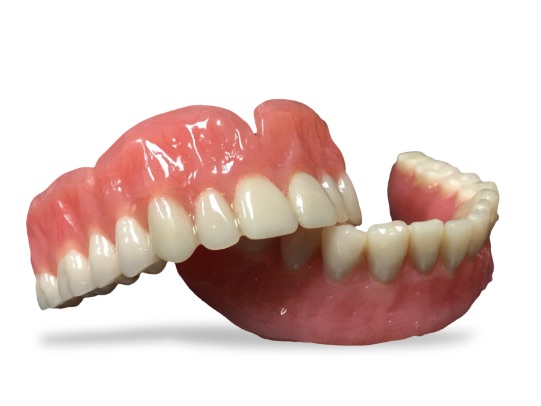Last Updated on 3 days by DR. ALBIN SIPES
Can you sing with dentures? If you’re someone who loves to belt out a tune or hum along to your favorite songs, you might be wondering how dentures can affect your singing abilities. Well, fear not! In this article, we’ll explore whether you can sing with dentures and provide some helpful tips to make the singing experience even better. Having dentures doesn’t mean you have to give up your passion for singing. In fact, many people with dentures continue to sing and perform without any issues. But, it’s essential to keep in mind that adjustments may be necessary to ensure optimal singing performance and comfort. So, if you’re curious about singing with dentures or looking for some advice to enhance your vocal abilities, keep reading! We’ve got you covered with all the information you need to continue pursuing your love for music, even with dentures. Let’s dive in and discover how you can embrace the joy of singing with confidence, dentures, and all!
Can you still sing with dentures? Offcourse? Dentures may feel different at first, but you will still pursue your passion for singing. To ensure optimal performance, follow these steps:
- Practice proper denture fit and use denture adhesive if needed
- Warm up your vocal cords with gentle exercises.
- Focus on appropriate tongue placement and pronunciation.
- Pay attention to your breathing technique.
- Stay hydrated to help soothe your throat.
With these tips, you can confidently sing your heart out with dentures!
Can You Sing with Dentures?
Having dentures doesn’t mean you have to give up your passion for singing. Many people wonder if they can still sing with dentures and if it will affect their singing abilities. In this article, we will explore the impact of dentures on singing and provide tips to help you sing with confidence and ease. So, if you’re a denture wearer who loves to sing or aspire to be a singer, this article is for you.
Impact of Dentures on Singing
While it’s true that dentures can have some impact on singing, the degree of influence varies from person to person. Here are a few factors to consider:
- Oral sensations: Denture wearers may experience a change in oral feelings. Which can affect their ability to enunciate certain sounds and phonetics. However, with time and practice, most individuals adapt and overcome these challenges.
- Fit and stability: Ill-fitting or loose dentures can affect breath control and voice projection. It is crucial to ensure that your dentures fit properly and are well-maintained to minimize any impact on your singing performance.
- Articulation and resonance: Dentures can slightly alter the natural resonance of your voice. However, this can be overcome with vocal training and exercises that focus on proper articulation and breath support.
To overcome these challenges and continue singing confidently with dentures, let’s explore some tips and techniques that can help you enhance your singing performance.
Tip 1: Practice Good Denture Care
Proper denture care is essential to maintain the fit, stability, and overall condition of your dentures. Regularly clean and brush your dentures to remove any accumulated debris and prevent bad breath. Store your dentures in a clean container with a denture-cleaning solution. It will keep them fresh and maintain their shape.
Schedule regular check-ups with your dentist to ensure that your dentures fit properly and make any necessary adjustments. Well-fitting dentures can significantly improve your singing experience.
Moreover, avoid using denture adhesives unless recommended by your dentist, as they can affect your ability to enunciate and may alter your vocal performance.
Tip 2: Work on Vocal Exercises and Techniques

Enhancing your singing abilities requires practice and training. Consider working with a vocal coach who can guide you through vocal exercises and techniques specifically tailored for denture wearers.
Focus on exercises that improve breath control, pronunciation, and resonance. Please pay attention to vowel sounds and practice shaping them correctly with your dentures in place. Work on exercises that target the muscles involved in speech and singing, such as tongue and lip exercises.
Remember, consistent practice and vocal training can help you adapt to singing with dentures and improve your overall vocal performance.
Tip 3: Build Confidence and Perform with Passion
Singing with dentures may initially feel different, but don’t let it discourage you. Building confidence is vital to delivering a heartfelt and captivating performance.
Practice singing with your dentures in various settings, such as rehearsals, karaoke nights, or with supportive friends and family. Gradually expose yourself to different performance environments to build confidence and overcome any self-consciousness.
Focus on the joy of singing and the connection with your audience. Sing with passion, expressiveness, and authenticity. The more you perform and embrace your unique voice with dentures, the more confident and comfortable you will become on stage.
Tip 4: Consider Denture Alternatives
If you find that your dentures significantly impact your singing abilities and overall comfort, consider exploring alternative options. Advancements in dentistry offer alternatives like dental implants or implant-supported dentures that provide a more stable and natural feeling when singing.
Consult with your dentist to discuss these alternatives and determine if they are suitable for your specific needs and goals as a singer.
Can You Sing with Dentures?
Yes, you can absolutely sing with dentures and enjoy your passion for music.
- Dentures may initially affect your singing technique as they require some change.
- Practice speaking and singing with your dentures to become more comfortable.
- Ensure your dentures fit properly to maintain proper airflow and projection.
- Use denture adhesives to prevent slipping while singing.
- Keep your dentures clean to avoid any discomfort or irritation while performing.
Can I sing as well with dentures as I did with my natural teeth?
Yes, you can still sing with dentures! While it may take some time to adjust to the feeling of singing with dentures, with practice, you can regain your singing abilities. Dentures are designed to closely mimic the function of natural teeth, allowing for everyday speech and singing. It may initially feel different, but you can still achieve the same level of vocal performance with dentures.
If you find that singing with dentures affects your sound or technique, consult a speech-language pathologist or a vocal coach with experience working with individuals who wear dentures. They can provide guidance and exercises to help you optimize your singing technique with dentures.
Will my dentures affect my vocal range?
No, dentures should not affect your vocal range. Dentures are custom-made to fit your mouth and are designed to restore the natural function of your teeth and jaw. With proper adjustment and fit, you should be able to maintain your entire vocal range.
If you experience any discomfort or difficulty while singing with dentures, it may be a sign that your dentures need to be adjusted or replaced. Consult your dentist to ensure a proper fit and function.
Do dentures affect the clarity of my singing?
In most cases, dentures should not significantly impact the clarity of your singing. Modern dentures are made with high-quality materials and advanced techniques, allowing for a natural look and improved functionality. However, individual experiences may vary.
If you feel that your dentures are affecting the clarity of your singing, it’s essential to consult your dentist. They can assess your dentures’ fit and make any necessary adjustments to enhance your singing performance.
How do I practice singing with dentures?
Practicing singing with dentures can help you become more comfortable and confident in your abilities. Start by singing familiar songs and gradually progress to more challenging pieces. Focus on your technique, breath control, and overall vocal performance.
Working with a speech-language pathologist or a vocal coach who specializes in working with individuals with dentures can be highly beneficial. They can provide guidance on proper tongue placement, breath support, and other techniques tailored explicitly to singing with dentures.
Are there any tips or tricks for singing with dentures?
Here are a few tips to enhance your singing experience with dentures:
- Ensure proper denture fit: Consult with your dentist to ensure your dentures fit securely and comfortably in your mouth.
- Practice good oral hygiene: Maintain excellent oral hygiene to keep your mouth and dentures clean. It helps prevent any potential issues while singing.
- Stay hydrated: Drinking an adequate amount of water keeps your mouth moisturized. It reduces the chances of denture-related discomfort.
- Exercise your facial muscles: Perform facial muscle exercises regularly to maintain the strength and control necessary for singing.
Remember, with time and practice, you can still achieve your best singing performance with dentures. Don’t hesitate to reach out to dental professionals or vocal coaches for guidance and support.
Summary
Singing with dentures is absolutely possible with some adjustments and practice. At the same time, dentures may have a slight impact on your vocal performance, with proper care, vocal training, and a confident mindset. You can overcome any challenges and continue pursuing your passion for singing. Don’t let dentures hold you back from expressing your unique voice and captivating your audience with your talent and artistry.




